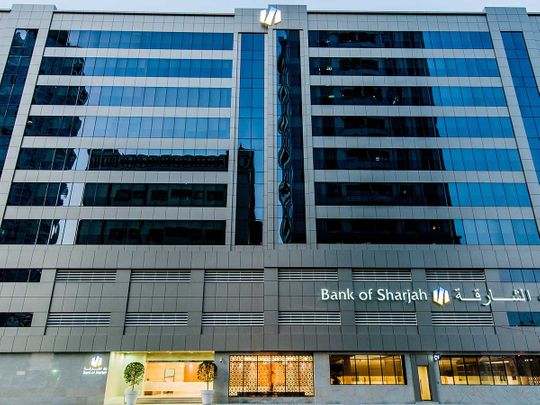
Dubai: Bank of Sharjah on Wednesday reported a net profit of Dh210 million for its UAE operations in the first half 2020 up 38 per cent compared to Dh152 million in 2019.
The bank’s consolidated profits including the losses incurred by its fully owned Lebanese Subsidiary Emirates Lebanon Bank SAL (ELBank) for the period was substantially lower at Dh18 million.
“The first half of the year has marked very significant developments having impacted markets where the Group operates in. Despite all challenging environments, the Group’s UAE operations demonstrated resilient performance underpinned by the robust fundamentals,” the bank said in a statement.
Strong balance sheet
The Group’s balance sheet remains strong, with total assets standing at Dh34.45 billion compared to Dh31.75 billion at yearend 2019 reflecting an increase of 9 per cent growth.
Asset quality and other metrics remain healthy as a result of strict adherence to maintaining a disciplined and focused approach to lending, recovery and funding. The Group continues to enjoy comfortable liquidity and a solid capital position with a customer deposit base of Dh23.5 billion up 10 per cent from Dh21.3 billion at yearend 2019. The bank’s loans-to-deposits ratio of 82 per cent at the close of the first half of 2020 compared to 83 per cent at the yearend 2019 and a cost-to-income ratio of 32 per cent compared to 57 per cent at end 2019.
High provisions in Lebanon
The Group’s operations in Lebanon, through its subsidiary ELBank, have been witnessing unprecedented events stemming from political and economic turmoil, since 17 October 2019. The Group has complied with Banque du Liban’s (BDL) call for the increase by 20 per cent of the equity of Lebanese banks prior to 30 June 2020.
The operating income before impairments of ELBank remains in line with last year’s comparable period results. However, the Group has been compelled to retroactively register Expected Credit Loss (ECL) figures in the Q1 2020 financial results based on an extremely conservative assessment for determining and recognizing all ECLs during Q1 and Q2, despite the fact that the Group had already taken the initiative of raising the needed ECL in Q3 as a result of the massive explosion in Beirut on 4 August 2020.
“This [the higher ECL provisions] has created a distortion between the results in the first half of the year and what was booked internally in Q3 to be corrected when the latter financials are published, with a resulting increase in the levels of the Group’s capital adequacy ratios,” the bank said in a statement.








